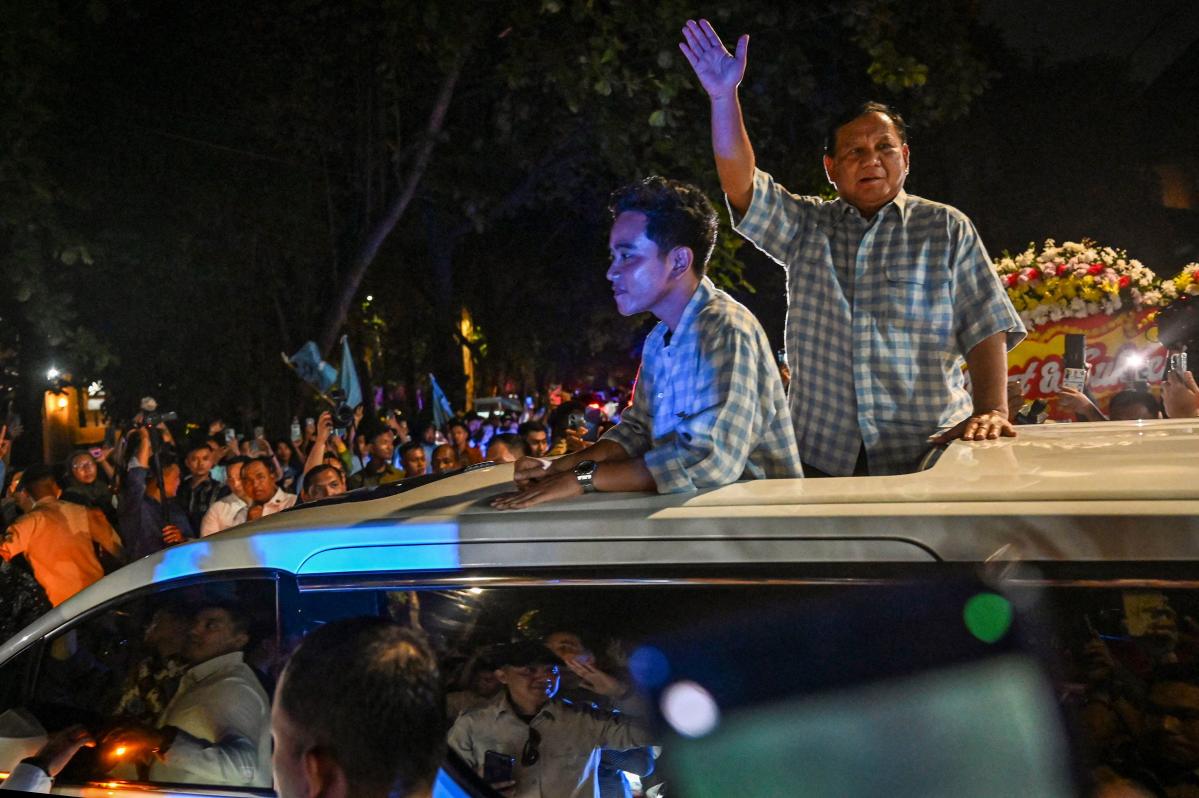Semafor Signals
Supported by
Insights from Foreign Affairs, The Financial Times, International Intrigue, Nikkei Asia, and Fulcrum
The News
Indonesia’s defense minister Prabowo Subianto has claimed victory in the presidential election, with early, unofficial tallies indicating that he has secured almost 60% of the archipelago’s vote.
The two other presidential candidates have not yet conceded defeat and there was no official announcement from electoral officials.
But the likely victory of Prabowo — an ex-general who was kicked out from the army and subjected to a two-decade ban from the U.S. over human rights violations — raises fears of the world’s third-largest democracy sliding backward into authoritarian rule.
Prabowo, who is the ex-son-in-law of the late Indonesian dictator Suharto, ran on a joint ticket with Gibran Rakabuming, the mayor of Surakarta, and current president Joko Widodo’s (Jokowi) eldest son.
More than 204 million Indonesians were eligible to vote in the elections — one of the biggest taking place in the world this year — with half of them under 40, according to government statistics.
Prabowo’s lead in pre-election polls was largely attributed to his campaign to continue Jokowi’s efforts to boost Indonesia’s economy and remain neutral in tensions between the U.S. and China. Critics have accused the outgoing president of using his personal and political influence to prolong his legacy.
SIGNALS
Indonesians would likely reject attempts to change political landscape
Southeast Asia experts argue that Prabowo would likely struggle to impose any iron fist in such a large, diverse country. Even as a young democracy, Indonesia has developed “a set of political norms that have shaped Prabowo’s campaign” and would “constrain him” as president, one analyst said. “Indonesian voters’ enthusiasm for Prabowo does not represent a disillusionment with democracy,” wrote Ben Bland, the Asia Pacific director of Chatham House, in Foreign Affairs. Voters are convinced that Prabowo will uphold Jokowi’s “positive economic legacy” — something Bland argued shows voters’ “implicit faith” that democracy will be upheld even with a hardline leader. “It might not resemble the Western vision of a liberal democracy, but the battles to shape the future of its political system will not end after the election,” he added.
Prabowo’s cuddly TikTok rebrand is aimed at Indonesians too young to remember Suharto
Prabowo, who portrayed himself as a “firebrand nationalist” in previous presidential bids, has softened his image to counter fears of democratic backsliding under his rule. The former general has been accused of numerous accounts of human rights abuses, including his involvement in the kidnapping and torturing of pro-democracy activists in Jakarta in the late 1990s. Now 72 years old, the ex-military officer has rebranded himself on social media platforms like TikTok, posting cutesy videos where he is captured smiling and wiggling his hips – leading Prabowo supporters, many of whom are too young to remember the Suharto dictatorship, to describe him as harmless and grandfatherly. “Prabowo is running a very different and effective campaign. It’s a lot less angry and much more youth-oriented,” an analyst at one Indonesian polling firm told the Financial Times. “It’s incredible what PR consultants and a top-notch TikTok team can do,” the newsletter International Intrigue noted, saying that Prabowo’s “rehabilitated” image has earned him the nickname “gemoy” — “adorable” in Bahasa.
Prabowo likely to continue Widodo’s neutrality in US-China rivalry
Jokowi’s non-alignment with the United States and China will likely continue under Prabowo, who has called both superpowers “friends” and has praised them for their support in recognizing Indonesia’s sovereignty and boosting its economy. Anies Baswedan, a former governor of Jakarta and one of the other presidential contenders, has however slammed the Widodo-led foreign policy as “transactional,” and has said that Indonesia needs to lessen its dependence on China and return to “values-based” diplomacy, Nikkei Asia reported. “When a country invades another country, we can say this is against our basic values. Even though we are friends, if rights were violated, we can reprimand them,” Anies told the Associated Press, without naming the country he was referring to. All presidential candidates have shown their support for Palestinians amid the ongoing conflict between Israel and Hamas, but experts say that of the three, Prabowo has introduced “the most tactical, clear-cut plan” to support the Palestinian cause, including offering scholarships to Palestinian cadets to study at Indonesia’s Defense University.
